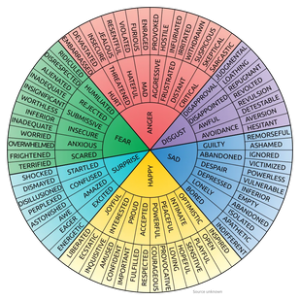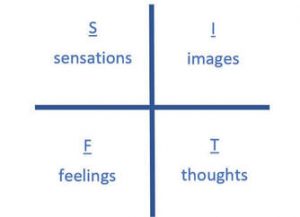Everything You Need to Know About Therapy – On and Off the Couch
Can you picture yourself walking in your favourite park, sun shining down on your face, picture perfect trees against a vast blue sky backdrop?
What if this was your counselling session?

Photo by Priscilla De Preeze on Unsplash
When choosing a therapist to work with your teen, fit is really important. You want to choose someone who your teen feels comfortable with, someone who you can communicate with easily, and someone with knowledge in working specifically with teen issues.
Beyond these considerations, you’ll also want to think about how the sessions will unfold. When I was developing my therapy practice, I gave a lot of thought to the different ways I worked things out when I was a teen. I have memories of walking with my best friends, tea in hand, venting about relationships and school stress. I remember keeping a journal for poems, art, and just letting it all out. I also remember blasting my music until the feelings passed.
That’s why it’s important to offer different ways for teens to meet with me. Here’s a little more information on the ways therapy can look when working with the team at Pyramid Psychology.

Photo by Priscilla De Preeze on Unsplash
Walk and Talk Sessions
My friend reminded me the other day that I had talked to them about the idea of walk and talk therapy sessions over 10 years ago. Although I’m definitely not the only person to have thought of this idea, it has been percolating in my mind over many years.
Walk and talk therapy sessions are when I meet with a client in a safe outdoor space (generally Fishcreek Park in Calgary, Alberta) and we walk during the session. We can take breaks and sit on the park benches or walk the entire time.
This kind of therapy can be great if:
– You are intimidated by the idea of sitting face to face with someone and talking about vulnerable topics
– You like to move
– You like being outdoors
– You have good conversations with others while walking

Photo on Canva Premium
Movement produces endorphins and other natural chemicals that help boost our mood. So the combination of being able to talk about your struggles while moving can be a natural way to help thoughts, feelings, and experiences transform from the inside out. Even paying attention to the speed of walk or the pace can help bring awareness to your teen’s experience and their ability to make choices that are right for them.
When I asked my first walk and talk teen client how the pace of our walk was, they answered, “what do you mean?”. I invited them to notice if our walking speed was too fast, too slow, just right and to notice that in their body. At first, I think the teen thought it was a little weird, but as they settled into noticing, they realized they wanted to walk just a little slower and we adjusted. It may have seemed like a small moment but it was so significant to have them check-in with how they were feeling in that moment and to advocate and ask for a change. This is a skill they continue to grow and use in their everyday life.
Walking side by side with your therapist can also help to even the playing field. What I mean by this is sometimes it can be intimidating for teens to talk to adults, let alone psychologist adults. Walking together can help it feel a little more comfortable and casual. The quality of the therapy is there, but the feelings surrounding it may make the conversation flow with more ease. You can check out www.pyramidpsychology.com for a little more information on walk and talk sessions.

Photo on Canva Premium
Expressive Arts
Expressive arts is a way of supporting teens (people of all ages really) to express, understand and discover while using experiential mediums such as paint, writing, drawing, photography, movement, music, crafting etc. Expressive arts is different from art therapy. It uses many different ways for teens to reflect and get to that place of change and action. Expressive arts also uses something called the Intermodal Process. The Intermodal Process means using multiple mediums in one session in order to gain a deeper understanding.
For example, you might start by creating an image and then write about the image or you may start by listening to some music and create a drawing in response.
It’s important to know:
– You don’t need to be an artist or
– Even think you are creative
– All you need is a little bit of curiosity and an open mind
– It can be as simple as starting with scribbles or creating a mini sculpture with pipe cleaners
I have trained for some time in expressive arts and the really humbling part is that in order to learn you need to do it. So I have tried many different ways of being creative, some which I love, some which I learn so much, and some that I won’t use that much in the future.

Photo by Etty Fidele on Unsplash
If a teen is interested in using expressive arts, we talk about it at first and discuss how it can be used occasionally during sessions as an additional way to process thoughts, feelings, experiences OR that it can be used as the main technique. It’s important for us to find the right fit. I also start off by getting to know the teen’s type of creativity they feel most comfortable with. Teens have said to me it’s been helpful to know the art is not graded and there is no expected outcome. The art making process is just as important as the product (the thing you create).
When teens (and me!) use expressive arts in session, oftentimes, they are surprised at what they notice and what comes to their awareness. It can help them:
– transform an emotional response (e.g. anxiety to calm)
– put into images/art/music feelings and thoughts that are difficult to put into words
– take an experience that feels scary and big and make it into a tangible creation that isn’t as overwhelming
– bring awareness to their inner experience in order to make changes and come to resolutions
– learn new skills, new ideas, and new knowledge
If your teen is less verbal, needs more time to process their experiences, or enjoys being creative, expressive arts might be a really good fit. The Thirsty for Art Podcast and Shelly Klammer are a couple resources to check out to learn more.

Photo on Canva Premium
Virtual Sessions
Some teens like virtual sessions because they can hop on from the comfort of their own home. If your teen has a private, cozy space where they can talk to their counsellor, this may be an option. It can be nice to have your pet snuggle up to you while in session and be able to sit on your bed or wear your pajamas.
Virtual sessions are not for everyone and here are a few things for your teen to consider:
- Is my home a space safe?
- Is it quiet and distraction free?
- Am I ok meeting someone in 2D?
- Am I virtually tapped out?
- What are the pros and cons of this type of therapy for me?

Photo on Canva Premium
On the Couch
Meeting face to face in a specific office space has its advantages. It is a container for therapeutic work. The space is dedicated for this and once a teen leaves, they metaphorically leave some of that tough stuff in that space. Having a consistent familiar space to meet can also help with that feeling of comfort and safety. Knowing all you need to do is show up and the space will be there, unchanging, and familiar can alleviate additional stress. Talking with someone face to face can help add things like non-verbal cues (e.g. body language) which gives another bit of information.
Your teen’s choice on how they want to work with their therapist is part of growing their self-esteem and confidence. You can always mix things up also and have some off the couch and some on the couch sessions – making the process of building bulletproof mindsets as creative as they want it to be!
Love,
Chantal
If you found this post helpful, pass it on by emailing a friend or sharing it on Twitter or Facebook – Thanks!
– Chantal Côté, R.Psych, Pyramid Psychology – helping older children, teens, and young adults learn how to build bulletproof mindsets.
 Chantal Côté (she/her) is a psychologist and teen life coach living in Calgary, Alberta. After over a decade in non-profit and community mental health, Chantal started Pyramid Psychology, a practice dedicated to supporting teens – a population she is constantly amazed by. Chantal is on a mission to help 100,000 teen girls (and their parents) build bulletproof mindsets so they can weather the ups and downs of life. As part of this goal, Chantal has had the privilege of speaking at various events – virtual and live – to support teens and parents.
Chantal Côté (she/her) is a psychologist and teen life coach living in Calgary, Alberta. After over a decade in non-profit and community mental health, Chantal started Pyramid Psychology, a practice dedicated to supporting teens – a population she is constantly amazed by. Chantal is on a mission to help 100,000 teen girls (and their parents) build bulletproof mindsets so they can weather the ups and downs of life. As part of this goal, Chantal has had the privilege of speaking at various events – virtual and live – to support teens and parents.
Outside of this passion, Chantal is often in nature, writing poetry, playing ball hockey and hanging out with her loved ones.
Each week, Chantal writes a blog article in response to issues she hears from the parents and teens she connects with. If you have something you’d like to read more on – email ideas and questions to info@pyramidpsychology.com or DM us via Instagram or Facebook.












































